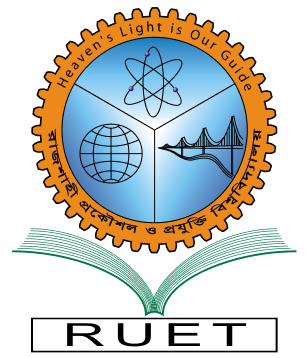Rajshahi University of Engineering & Technology (RUET) is committed to reducing inequalities within and among communities, in line with Sustainable Development Goal 10. The university promotes equitable access to quality education, fosters social inclusion, and supports opportunities for students and faculty from diverse socio-economic and regional backgrounds.
Key Highlights
Diversity in Student Enrollment: RUET’s undergraduate student body includes students from all 8 divisions of Bangladesh, including traditionally underrepresented northern districts. Approximately 45 % of enrolled students are female, reflecting ongoing efforts toward gender parity in STEM. (RUET Annual Report 2024)
Financial Support & Scholarships: RUET provides merit-based and need-based scholarships, including the Prime Minister’s Scholarship, RUET Merit Scholarship, and departmental assistance programs. Around 200 students annually benefit from financial support targeting disadvantaged socio-economic backgrounds. (RUET Student Affairs)
Accessible Campus & Facilities: The university has enhanced infrastructure to support students with disabilities, including ramps, accessible hostels, and assistive technology in laboratories and classrooms, ensuring equitable access for all.
Outreach & Community Engagement: Departments conduct STEM workshops, skill-building programs, and awareness campaigns in rural and underprivileged areas of northern Bangladesh. These initiatives reached over 1,000 students and community members in 2024, promoting inclusion and capacity-building. (RUET Career Forum)
Equitable Faculty & Staff Opportunities: RUET implements transparent hiring and promotion policies, providing equal opportunities for male and female faculty members. As of 2024, approximately 30 % of faculty are female, with active efforts to increase representation through targeted recruitment initiatives.
Impact & Next Steps
RUET’s policies and programs reduce regional, socio-economic, and gender-based inequalities by ensuring access to high-quality STEM education and professional development opportunities.
Planned Directions:
Expanded Scholarships: Expand scholarships and financial support to reach more than 500 students annually from underprivileged communities.
Mentorship Programs: Introduce mentorship programs connecting senior students and alumni with students from remote districts.
Enhanced Accessibility: Enhance campus accessibility for students with disabilities, including smart classroom technology and assistive learning devices.
Community Outreach: Strengthen community outreach programs, particularly in remote and underrepresented northern districts, to provide STEM education and vocational training.
